profile badges
...
...
...
...
recent achievements

I'm Gettin' the Hang of It
Claim that you have played a game today by clicking the "Played Today!" button on a game page 10 times.
Claim that you have played a game today by clicking the "Played Today!" button on a game page 10 times.

I Got What I Wanted
Add a game to your Owned list that was previously in your Wish list.
Add a game to your Owned list that was previously in your Wish list.

Supporter
Give 10 hearts (loyalty points) to a single game
Give 10 hearts (loyalty points) to a single game

Gamer - Level 3
Earn Gamer XP to level up!
Earn Gamer XP to level up!



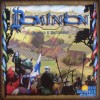






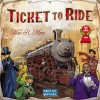

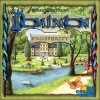
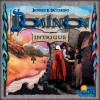




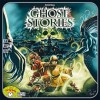
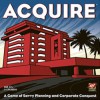

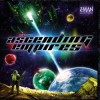
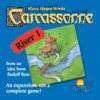


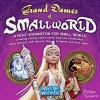
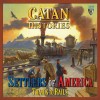
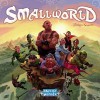






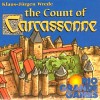

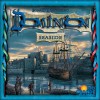
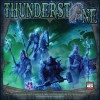
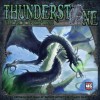

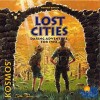





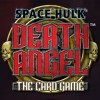




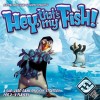






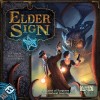


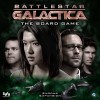
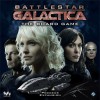



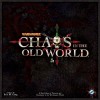
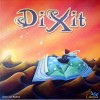
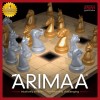

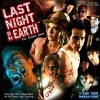



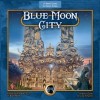






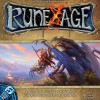


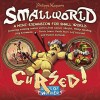



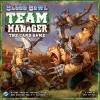



Settlers of America - Trails to Rails
Like many board gamers, Settlers of Catan was my introduction to the hobby. My group played the heck out of it – we’d never seen anything like it: a game with negotiation and trading, where you made real decisions along the way and felt like your wins were earned more than lucked into. Of course, it doesn’t feel like that now, but when all you’ve played are game like Life, Payday and Pictionary, Catan is pretty revolutionary.
Fast forward a couple of years, and I’ve got into the hobby big time. Compared to favorites like Agricola and Container, Settlers of Catan just feels too light and luck-based (though it does teach a harsh, valuable lesson about probabilities). When a friend introduced me to Settlers of America, I was a little reluctant. I found the game to be a pleasant surprise, however, as it fixes some of the quibbles I have with its predecessor while still feeling familiar.
First, it retains that Catan feel so it shouldn’t scare any fans of the original game away. As soon as you sit down you’ll see hexes, numbered discs, dice and little wooden houses. You’ll also notice that all of the numbers are in the east, and the west is barren. That’s because everyone’s starting settlements have to placed in the east, and as players builds settlers (little wagons) and move them out west, they create new settlements. As this occurs, you start moving those numbered discs away from the east and bring them out west, which is a neat mechanism.
The game still produces resources based on dice rolling, with the hexes that match the number rolled producing resources. There is now a consolation prize as well – if you don’t produce any resources, you get a gold token. 2 gold can be exchanged for 1 of any resource, plus since the gold is a chit instead of a card, it doesn’t count against you for the robber. Yes, the robber as you know him is in this game as well – when a 7 is rolled, people with more than 7 cards must discard half. Well, he’s not quite as deadly thanks to another welcome change: at the end of each player’s turn, every player has a chance to build. This means no more getting a huge windfall of cards then losing them to an untimely robber attack before you’ve had a chance to use them.
These changes mean that, while there is still luck in the game, things aren’t quite so feast-or-famine anymore. The other major change in the game is the win condition. Gone are victory points. Instead, each player has a certain number of goods cubes to deliver; the first to deliver all of his cubes wins the game. Each settlement on the board has a spot for exactly one cube to be delivered, and you cannot deliver cubes to your own settlements. Cubes are delivered via train, which requires tracks to be built (much like roads are built in the original game). A twist here is that you get rewarded with gold when you connect a new city up to a network of track, and opponents may use your tracks – if they pay you gold to do so.
The result is a game that gives me that same nostalgic tingle I get from Settlers, but offers enough meat on its bones to satisfy my current, mid-to-heavy eurogame tastes. When and where to expand is key. If you clump your settlements together you may find it faster and easier to branch out, but you run the risk of making it easy for an opponent to deliver to your cities in short order. Some of those early game settlements might get you some good resources right away, but those production nodes will dry up when the westward expansion starts so do you accept the swing in resources or play it safe with hexes that will always be productive?
It’s not the heaviest game out there, but it’s a nice mid-weight game. It did what I thought was impossible: it made me excited to play a Settlers game again. Like its predecessor, Settlers of America is something I’ll only play as a 4-player game, and it tends to take right around 2.5 hours. If you have fond memories of Settlers of Catan but feel like you’ve outgrown it, I highly recommend giving this game a long look.
*My only complaints with the components is the tracks. The trains will not sit on them and must go next to them instead. Actually, this doesn’t bother me. You cannot have more than 2 trains using a piece of track at a time, so the trains go next to the track (one on each side) rather than on top of it. This seems to irk the people I play with, though.